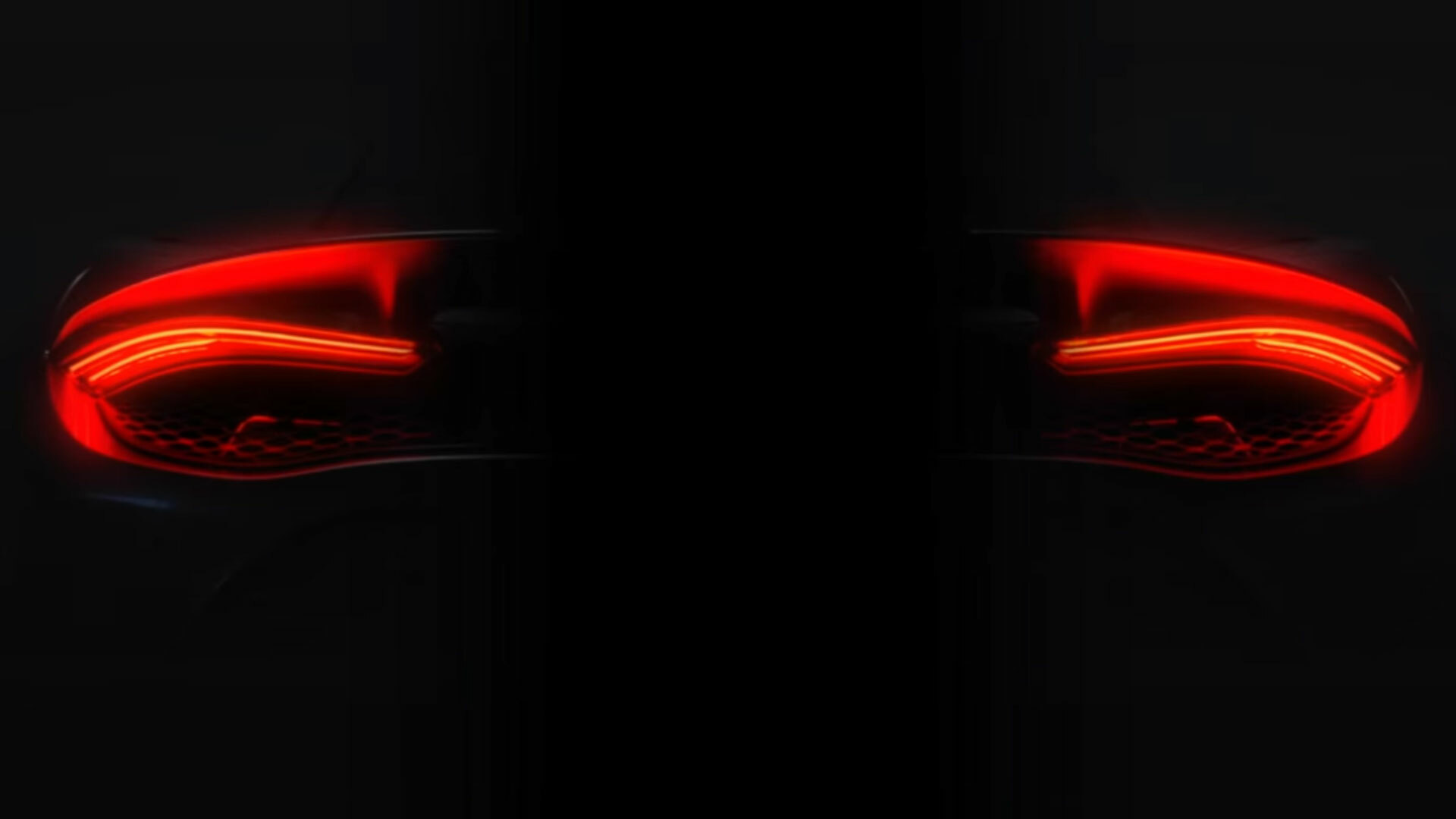
Następca 720S ma mieć zmienioną stylistykę i silnik V8 z podwójnym turbodoładowaniem o mocy 740 koni mechanicznych.

przez Michaela Gauthiera
{{comments}} komentarz
15 godzin temu
McLaren przygotowuje się do zaprezentowania „nowego rekordowego supersamochodu” 25 kwietniay 18:58 ET (23:58 BST).
Firma niewiele mówi o modelu, ale opublikowała krótki zwiastun wideo, który daje nam wgląd w tył samochodu. Chociaż nie ma wiele do zobaczenia, model będzie miał przewiewny przód i smukłe tylne światła LED.
McLaren trzyma szczegóły w tajemnicy, ale spodziewamy się, że tajemniczy model będzie następcą 720S. To się jeszcze okaże, ale zwiastun jest prawie plującym obrazem tylnej części 720S.
WIĘCEJ: McLaren 720S zyska 30 KM i stanie się 750S, raport twierdzi
Model 720S zostanie wycofany z produkcji w 2022 roku, a szef McLarena w Ameryce zasugerował, że zastąpienie go będzie raczej „ulepszeniem” niż „całkowicie nowym samochodem nowej generacji”. Dodał, że klienci już złożyli depozyty na samochód i został on sprzedany „tak głęboko, jak w 2024 roku”.
Niedawno pojawiły się doniesienia, że samochód otrzyma 4-litrowy silnik V8 z podwójnym turbodoładowaniem, który będzie wytwarzał 740 KM (552 kW / 750 KM) zamiast 710 KM (530 kW / 720 KM). To pomaga wyjaśnić, dlaczego oczekuje się, że model przyjmie pseudonim 750S.
Wiadomości motoryzacyjne Wspomniałem wcześniej, że samochód będzie ewolucyjny i będzie wyposażony w nowy przedni zderzak, większe wloty i większe hamulce pneumatyczne inspirowane tymi, które można znaleźć w 765LT. Oczekuje się również, że model będzie wyposażony w cyfrowy zestaw wskaźników, podobny do Artory, który jest montowany nad kolumną kierownicy.
Samochód podobno pojawi się w USA tej jesieni i będzie oferowany jako coupe i kabriolet w momencie szalupy. Nic dziwnego, że model nie będzie tani, ponieważ samochód ma kosztować około 341 550 USD, czyli o 10% więcej niż 720S.
array(10) {
[0]=>
string(123) "
McLaren is gearing up to introduce a “new benchmark supercar” on April 25th at 6:58 PM ET (23:58 BST)."
[1]=>
string(251) "
The company isn’t saying much about the model, but they released a short teaser video that gives us a glimpse of the car’s rear end. While there isn’t much to see, the model will have a ventilated fascia as well as slender LED taillights."
[2]=>
string(257) "
McLaren is keeping details under wraps, but we’re expecting the mystery model to be the 720S successor. That remains to be seen, but the teaser is almost a spitting image of the 720S’ rear end."
[3]=>
string(193) "
More: McLaren 720S To Gain 30 HP And Become 750S, Report Claims"
[4]=>
string(886) "
The 720S went out of production in 2022 and McLaren’s President of the Americas has hinted its replacement will be a “refinement,” rather than a “next-generation, all-new, ground-up vehicle.” He added customers have already been putting deposits down on the car and it’s sold out “deep into 2024.”"
[5]=>
string(249) "
More recently, reports have indicated the car will have an upgraded twin-turbo 4.0-liter V8 that produces 740 hp (552 kW / 750 PS) instead of 710 hp (530 kW / 720 PS). This helps to explain why the model is expected to adopt the 750S moniker."
[6]=>
string(412) "
Automotive News has previously reported the car will be evolutionary and feature a new front bumper, larger intakes, and a bigger air brake inspired by the one on the 765LT. The model is also expected to adopt an Artura-like digital instrument cluster, which is mounted on top of the steering column."
[7]=>
string(311) "
The car will reportedly arrive in the United States this fall and be offered as a coupe and convertible at launch. Unsurprisingly, the model won’t come cheap as the car is expected to start around $341,550 which would be 10% more than the 720S."
[8]=>
string(650) "
array(10) {
[0]=>
int(0)
[1]=>
int(1)
[2]=>
int(2)
[3]=>
int(3)
[4]=>
int(4)
[5]=>
int(5)
[6]=>
int(6)
[7]=>
int(7)
[8]=>
int(8)
[9]=>
int(9)
}

„Subtelnie czarujący nerd popkultury. Irytująco skromny fanatyk bekonu. Przedsiębiorca”.





More Stories
Ta ładowarka GaN o mocy 100 W jest cienka i składana
Plaud wypróbowuje prostszy pin AI
Stare i nowe procesory Ryzen zyskują większą prędkość dzięki opcjonalnej aktualizacji systemu Windows